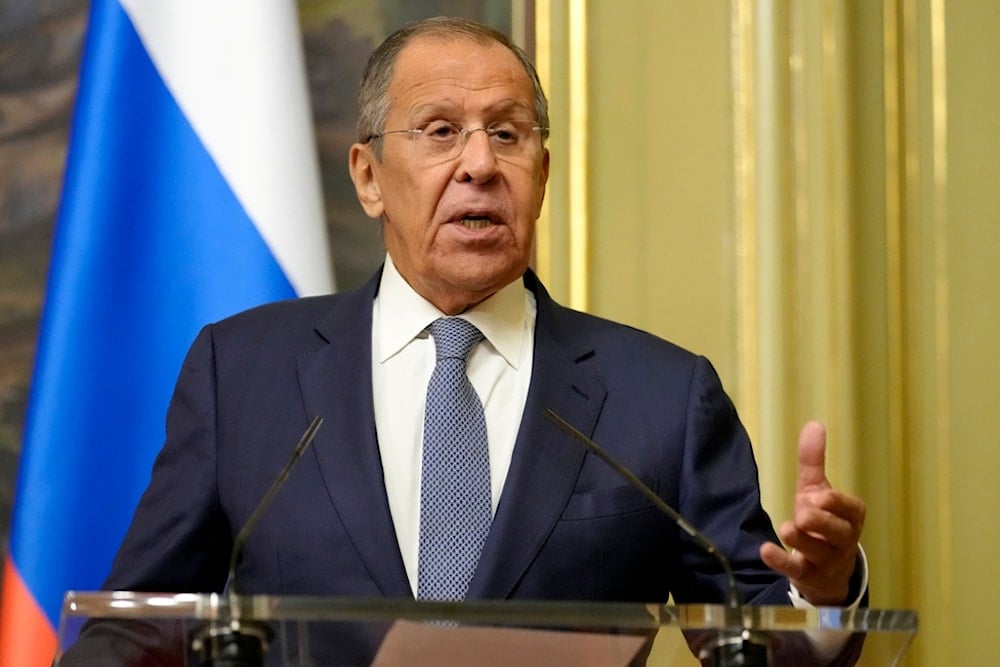Russia, Iran ready to support Armenia-Turkey normalization: Lavrov
Armenia believes it must engage in direct talks with Turkey before taking the next step, Russia's top diplomat said.
-

Russian Foreign Minister Sergey Lavrov speaks during a joint news conference with Egypt's Foreign Minister Badr Abdelatty following their talks in Moscow, Russia, Monday, September 16, 2024. (AP)
Russian Foreign Minister Sergey Lavrov said on Friday that Russia and Iran are prepared to support the normalization process between Armenia and Turkey.
The remarks follow a 3+3 foreign ministers' meeting on the South Caucasus held on Friday, with his counterparts from Armenia, Azerbaijan, Iran, and Turkey.
"I think that this is definitely related to the Armenian-Azerbaijani normalization, so we have proposed that these issues are considered as a package and that the countries involved are encouraged to come to an agreement as soon as possible. In turn, we, Russia and Iran, are ready to provide assistance if the direct participants are interested in it," Lavrov said.
He noted that Armenia believes it must engage in direct talks with Turkey before taking the next step.
President Recep Tayyip Erdoğan received Minister of Foreign Affairs Sergey Lavrov of Russia, Minister of Foreign Affairs Jeyhun Bayramov of Azerbaijan, Minister of Foreign Affairs Ararat Mirzoyan of Armenia, and Minister of Foreign Affairs Abbas Araghchi of Iran, who are in… pic.twitter.com/wvfRbk5NAN
— Republic of Türkiye Directorate of Communications (@Communications) October 18, 2024
Turkey and Armenia do not maintain official diplomatic relations, and their borders have been closed by Turkey since 1993. The tensions between the two nations stem from several issues, including Turkey's support for Azerbaijan in the Nagorno-Karabakh conflict and its opposition to the international recognition of the 1915 Armenian genocide by the Ottoman Empire.
In June, Turkish President Recep Tayyip Erdogan and Armenian Prime Minister Nikol Pashinyan expressed their political commitment to pursue a full and unconditional normalization of relations between the two countries.
Then in July, Russia offered to host the Armenia-Azerbaijan summit following the West's failure in acting as a mediator.
Read more: Russia offers to host Armenia-Azerbaijan summit amid EU, US failure
Nagorno-Karabakh, still a point of contention
The situation in Nagorno-Karabakh remains tense following Azerbaijan’s military offensive in September 2023, which led to the dissolution of the region's self-proclaimed government.
As a result, nearly all ethnic Armenians—around 100,000 people—have fled to Armenia, leaving the enclave largely depopulated.
Recent reports indicate that Armenian and Azerbaijani officials are exploring ways to establish peace, with Armenia expressing hopes of signing a peace agreement by the end of 2024.
Read more: Overwhelming Azerbaijani support for peace treaty with Armenia: Poll
However, tensions continue to simmer, with accusations from both sides regarding the treatment of displaced persons and control over the region.
Furthermore, border clashes have occurred intermittently, keeping the conflict in a fragile state.
Efforts by international bodies, including the United Nations and the International Criminal Court, have aimed to address these humanitarian issues, but a lasting resolution remains elusive.

 3 Min Read
3 Min Read








